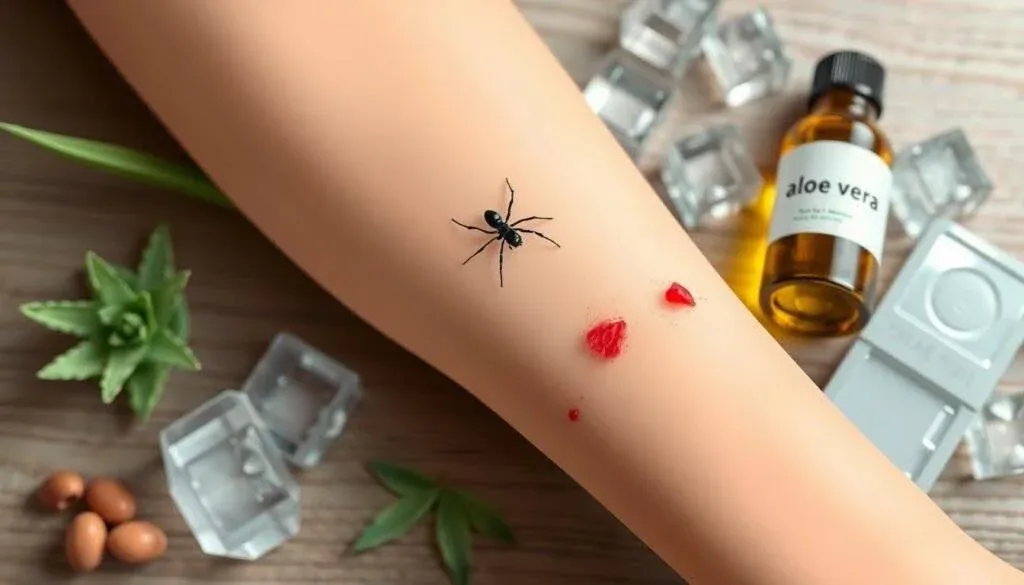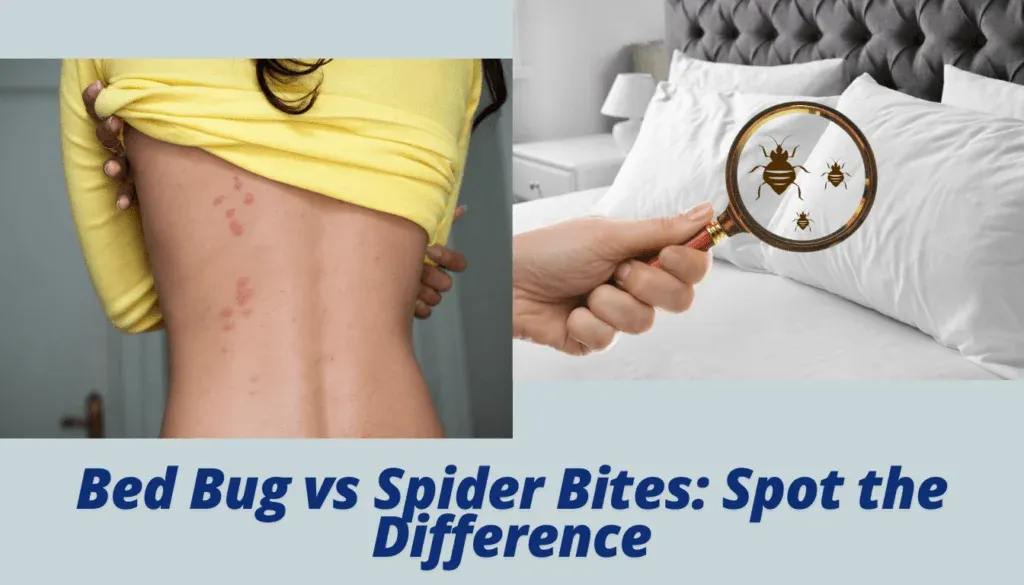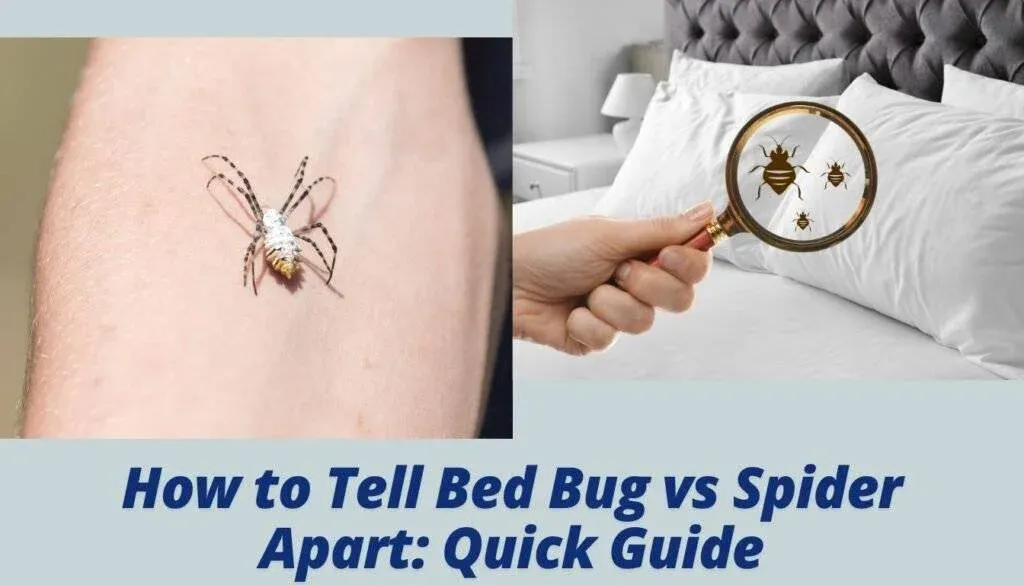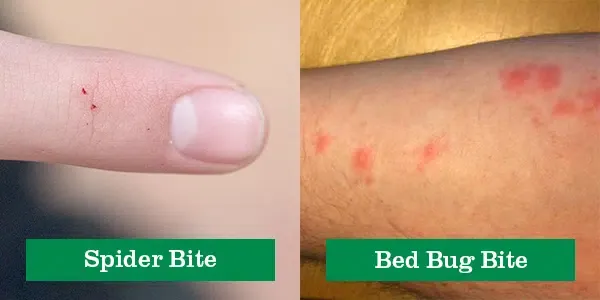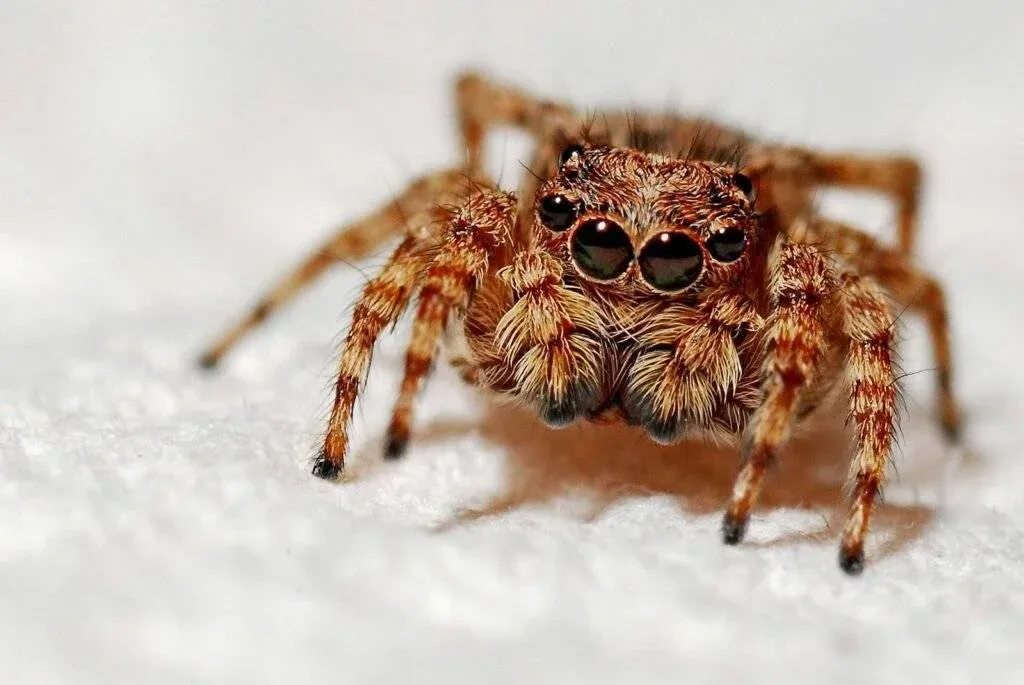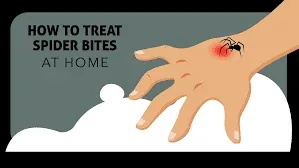Getting bitten by a spider can be scary. But knowing how to treat it quickly is key to feeling better fast. Early action can lessen symptoms and avoid bigger problems.
There are simple home remedies and medical treatments. Knowing your choices helps you get better quickly. This part talks about what to do after a spider bite and why being ready is important.
Learning from trusted sources helps you heal faster. You’ll feel more confident on your healing journey.
Key Takeaways
- Act promptly if bitten to reduce symptoms and complications.
- Home remedies can provide immediate spider bite relief.
- Understanding various treatment options is essential for recovery.
- Professional help should be sought for severe reactions.
- Equipping yourself with knowledge can enhance your response.
Understanding Spider Bites
A spider bite happens when a spider injects venom into a human’s skin. This usually occurs when the spider feels threatened. Most spiders try to avoid humans and only bite when they must.
Not all spiders can hurt humans. In North America, only a few, like the black widow and brown recluse, have venom that can cause serious problems. Knowing which spiders to watch out for can help avoid bites.
Spiders bite when they get caught, like in clothing or hands. They use venom to catch and eat their prey. This makes people think all spider bites are dangerous.
Here’s a brief overview of common spiders that are associated with bites in North America:
| Spider Species | Venom Severity | Common Symptoms |
|---|---|---|
| Black Widow | High | Muscle pain, cramps, nausea |
| Brown Recluse | Moderate | Rash, severe pain at the bite site |
| Common House Spider | Low | Minimal discomfort, slight itching |
Signs and Symptoms of Spider Bites
It’s important to know the signs of spider bites to get the right treatment. The symptoms can change based on the spider type and how you react. Spotting these signs early helps figure out what to do next.
Common Symptoms to Look For
The usual signs of spider bites are:
- Redness around the bite area
- Swelling at the site of the bite
- Pain or discomfort
- Itching
- Bumps or blistering
These early signs are usually mild. They can often be handled at home. Knowing these signs helps you act fast.
When Symptoms Worsen
Some spider bites can get worse, showing a serious problem. Watch for:
- Severe pain that spreads beyond the bite area
- Fever or chills
- Intense itching or rash
- Signs of infection, such as increased redness, warmth, or discharge
If you see these serious signs, get medical help right away. This can stop things from getting worse.
What to Do Immediately After a Spider Bite
If you get bitten by a spider, act fast. Start by staying calm. This helps you handle the situation better.
First, wash the bite with soap and water. This cuts down infection and irritation risks. Then, use a cool compress to lessen swelling and pain. A cold cloth or ice pack works well.
Watch the bite area closely. Look for signs like more redness, swelling, or pain. If you see these, get medical help. Keeping a symptom journal helps doctors treat you right.
Spider Bite First Aid
Knowing how to react quickly to a spider bite can help a lot. It can make you feel better and avoid bigger problems. Quick first aid and home remedies can offer relief and comfort.
Initial Steps to Take
When you get bitten by a spider, acting fast is key. Here are the important steps:
- Wash the area with soap and water to avoid infection.
- Use a cold compress or ice pack for 10 minutes to lessen swelling and pain.
- Elevate the bitten area to reduce swelling.
- Take pain relievers like ibuprofen or acetaminophen to ease discomfort.
- Watch for any worsening symptoms and report them.
Home Remedies for Instant Relief
There are also home remedies that can help with spider bites. You might already have these items at home:
- Antihistamines: They can help with itching and swelling.
- Aloe vera: Its gel soothes and hydrates the skin.
- Baking soda paste: It can help with itching when mixed with water.
- Tea bags: A cool, wet tea bag can offer temporary relief.
Treatment for Spider Bite
Managing spider bites is key to feeling better and avoiding problems. There are many ways to treat spider bites, mostly using medicines you can buy without a prescription. Knowing these options helps you make smart choices after a spider bite.
Over-the-Counter Pain Relief Options
For spider bites, the first step is often using medicines you can buy. These help lessen pain and swelling, making it easier to get better. Some common ones are:
- Ibuprofen (Advil, Motrin): An anti-inflammatory that relieves pain and reduces swelling.
- Acetaminophen (Tylenol): Effective for pain relief but does not address inflammation.
- Antihistamines (Benadryl, Claritin): Useful for controlling itching and allergic reactions associated with bites.
When to Seek Professional Help
While many spider bites can be treated at home, some signs mean you need a doctor. You should see a healthcare provider right away if:
- The bite site shows increasing redness, swelling, or warmth.
- Severe pain escalates or does not improve with standard treatments.
- Symptoms include fever or chills.
- There are signs of infection, such as pus or drainage from the bite.
Knowing when to get help and what treatments are available helps you recover better and avoid serious issues.
Spider Bite Care: Best Practices
Proper care for spider bites is key to healing and avoiding complications. By following best practices, you can keep the area clean and protected. This helps in your recovery.
Keeping the Affected Area Clean
Cleaning the bite area is very important. Here are steps for good hygiene:
- Gently wash the bite area with soap and water to reduce the risk of infection.
- Pat the area dry using a clean towel. Avoid rubbing, as this may cause further irritation.
- Consider applying an antiseptic to the bite for added protection against bacteria.
Moisturizing and Protecting the Skin
Keeping the skin around the bite moist is crucial. It prevents dryness and irritation, which can slow healing. Here are some tips for skin care:
- Apply a gentle, fragrance-free moisturizer to keep the skin hydrated.
- Use a bandage to cover the bite if the area is prone to irritation or scratching.
- Reapply moisturizer as needed, especially after washing the area.
By following these spider bite care methods, you can help your body heal. Keeping the affected area clean and moisturized ensures a smoother recovery.
Spider Bite Relief Techniques
Dealing with a spider bite can be uncomfortable. There are many ways to ease the pain, swelling, and itching. These methods include natural remedies that have been used for a long time and newer discoveries in natural medicine.
Natural Remedies to Soothe the Pain
Many people look for natural ways to treat spider bites. They want to avoid medicines from the store. Here are some effective options:
- Aloe Vera: Aloe vera gel is soothing. It reduces inflammation and eases pain.
- Baking Soda Paste: A baking soda paste can neutralize venom. It helps with itching and discomfort.
- Chamomile: Chamomile, used as a tea bag compress, has anti-inflammatory effects. It eases irritation and swelling.
- Essential Oils: Oils like lavender and tea tree have antimicrobial benefits. They soothe pain and reduce infection risk when used correctly.
How to Reduce Itching Effectively
Itching from spider bites can be very annoying. Here are some natural remedies to help:
- Cold Compresses: A cold pack on the affected area numbs the skin. It relieves itching.
- Oatmeal Baths: Adding colloidal oatmeal to a bath calms itchy skin. It leaves the skin feeling refreshed.
- Apple Cider Vinegar: Diluted apple cider vinegar on the bite helps with itching. It also reduces swelling.
- Calamine Lotion: Although not all natural, calamine lotion is known for quick itching relief.
Spider Bite Medication
When you get a bad spider bite, you need the right medicine. Some medicines can help with the venom’s effects and stop more problems.
Corticosteroids help with swelling and pain. Doctors might give you prednisone or hydrocortisone. This depends on how bad the bite is and your health.
Antibiotics are key if you think you might get an infection. Drugs like amoxicillin or cephalexin fight off bacteria. Taking these on time can stop symptoms from getting worse.
Choosing the right medicine depends on the spider type. For example, black widow bites might need special antivenom and painkillers. Other bites might just need antibiotics and basic care.
| Type of Spider | Recommended Medication | Dosage |
|---|---|---|
| Black Widow | Antivenom, Morphine | As prescribed by a healthcare professional |
| Brown Recluse | Corticosteroids, Antibiotics | As directed |
| Other | Antibiotics | Based on infection risk |
Always talk to a doctor for the best treatment. They can make a plan just for you. This shows how important it is to get help from a professional for spider bites.
Spider Bite Management for Different Types
Knowing about the different types of spider bites helps a lot. It’s important to know which spider bit you. This way, you get the right treatment for your bite.
Identifying Different Spider Species
It’s key to know which spider bit you. Not all spider bites are serious. Some spiders can hurt you, but most don’t.
- Black Widow: Has a shiny black body and a red hourglass mark.
- Brown Recluse: Has a violin mark on its back, found in dark spots.
- Wolf Spider: Big and hairy, fast; not usually harmful to people.
Tailored Treatments Based on the Spider Type
Each spider bite needs its own treatment. Here’s how to handle bites from certain spiders:
| Spider Species | Symptoms | Treatment |
|---|---|---|
| Black Widow | Severe pain, muscle cramps | Seek medical attention; antivenom may be needed |
| Brown Recluse | Necrotic skin lesions | Topical antibiotics and possibly surgery |
| Wolf Spider | Localized pain, swelling | Home care; ice pack and over-the-counter pain relief |
How Long Do Spider Bites Last?
Spider bites can last different times. This depends on the spider type, your health, and the treatment you get. Knowing how long spider bites heal is key for those bitten.
Mild spider bites usually heal in a few days to a week. But, bites from venomous spiders can take longer and cause more serious symptoms. Some people may have swelling, redness, and pain for weeks.
Many things can affect how fast you heal:
- Type of Spider: Bites from black widow or brown recluse spiders heal slower than harmless ones.
- Individual Health: If you have health issues or a weak immune system, healing takes longer.
- Treatment Received: Getting the right treatment quickly can make bites heal faster.
- Proper Care: Keeping the bite clean and covered helps it heal faster.
It’s important to watch your symptoms. If pain or signs of infection get worse, see a doctor. They can help if the bite is taking too long to heal.
| Spider Type | Typical Healing Duration | Symptoms Duration |
|---|---|---|
| Harmless Spiders | 3-7 days | 1-3 days |
| Black Widow | 1-3 weeks | 1-2 weeks |
| Brown Recluse | 2-8 weeks | 1 month or longer |
Knowing how long spider bites last helps you recover better. It’s all about understanding the healing process.
Complications Related to Spider Bites
After a spider bite, knowing about spider bite complications is key, especially infections. Paying attention to your body can catch serious problems early. Knowing the symptoms of infection from spider bites helps you act fast.
Signs of Infection to Watch For
Infections can start quickly after a spider bite. Watch the bite area for these warning signs:
- Increased redness around the bite
- Swelling that doesn’t go away or gets worse
- Pus or any discharge from the bite
- Fever or chills with the bite
- Intense pain that gets worse over time
Seeing a doctor right away is important if you notice these signs. Ignoring infection signs can cause serious health issues. Knowing what to watch for is key to getting better.
Does a Spider Bite Spread?
Many people worry if a spider bite can spread. It’s good to know that spider bites don’t spread like diseases. They don’t pass on illness from one person to another.
Spiders can’t transfer venom by touching or being near someone else. Their venom goes straight into the victim through their fangs. This venom can cause symptoms in the bitten area but won’t spread to others.
Experts agree on this, helping clear up spider bite myths. Knowing the truth about spider bites can ease worries. It helps people focus on getting the right treatment.
FAQ
What is the best treatment for spider bites?
Clean the bite area first. Then, use a cool compress. For pain, take ibuprofen or acetaminophen. Antihistamines can help with itching.
What is the first aid treatment for a spider bite?
Wash the bite with soap and water. Use a cool compress to reduce swelling. Take pain relievers if needed. Watch for symptoms.
What are 5 signs and symptoms of a spider bite?
Look for redness, swelling, and pain. Itching is common. Fever or chills mean it’s serious.
What antibiotic cream is good for spider bites?
Neosporin is good for preventing infections. Apply it after cleaning the area.
What is the fastest way to heal a spider bite?
Clean the wound well. Keep it moist and apply antibiotic ointment. Use pain and inflammation meds as needed.
Is Vaseline good for spider bites?
Yes, Vaseline keeps the area moist. This helps with healing and protects the skin. Use it after cleaning and drying.
Is toothpaste good for spider bites?
No, toothpaste is not good for spider bites. It can irritate the skin and cause more discomfort.
How can I stop a spider bite from itching?
Try antihistamines, cold packs, or hydrocortisone cream. Keep the area clean and avoid scratching.
How long do spider bites last?
Spider bites last from hours to days. Serious bites may take longer to heal.
Does a spider bite spread?
No, spider bites don’t spread. The body’s reaction may cause swelling, but it’s not contagious.
When should I worry about a spider bite?
Seek medical help for severe pain, swelling, fever, or signs of infection like pus.
How do you stop a spider bite from itching?
Use cold compresses, hydrocortisone or calamine lotion, or antihistamines to manage itching.

